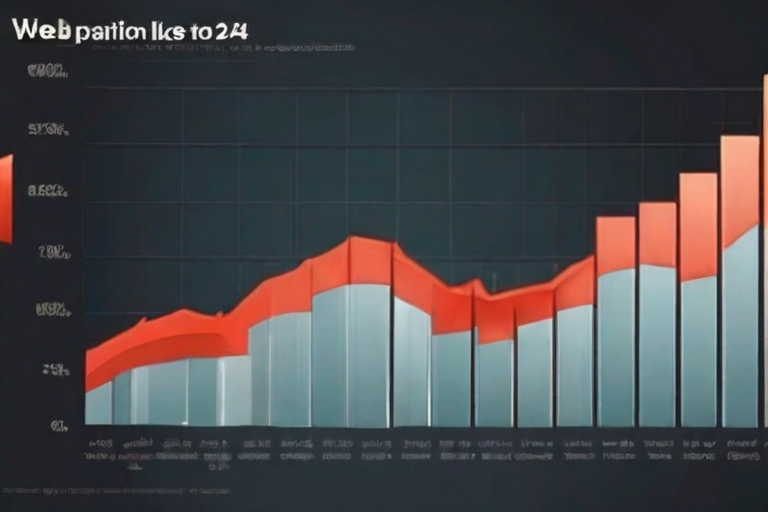Integrating mobile SEO into app development enhances visibility and increases app downloads. Developers optimize apps by embedding SEO strategies to ensure higher rankings and user engagement. Success in this domain relies on attention to regional and mobile-specific SEO practices, focusing on local market optimization and core strategies that align with user behavior.
Table of Contents
- Maximize App Visibility with Local SEO Tactics
- Leverage Regional Keywords for Better App Reach
- Optimize Mobile SEO in App Development Processes
- Focus on Mobile User Experience for SEO Success
- A/B Testing Enhances Your App’s SEO Potential
- Measure SEO Gains with A/B Testing Analytics
- Progressive Web Apps Drive Unexpected SEO Benefits
- Use PWAs to Improve Mobile Content Indexing
- How Can Voice Search Change Mobile SEO Practices
- Quantify Voice Search Optimization Impacts on Mobile SEO
Key Takeaways for Best Practices in Integrating Mobile SEO in App Development
- Local SEO techniques significantly boost app visibility in regional markets through app localization strategies.
- Developers use regional keywords to increase app reach and influence search rankings by adjusting keyword frequency based on location-based trends.
- The mobile UX critical aspects, including speed and design, enhance SEO results and app performance.
- Incorporating SEO guidelines during app development stages ensures long-term user acquisition and retention.
- Tools such as Google Analytics assist in monitoring the effectiveness of mobile UX improvements on SEO.
- Matrics Rule utilizes geo-targeted marketing to stay ahead in the app SEO industry.
- Regular app updates that integrate SEO strategies are crucial for sustained relevance and market success.
Maximize App Visibility with Local SEO Tactics
Local SEO tactics involve optimizing apps for specific regional markets through localization strategies. This approach caters to local audiences by using geo-targeted marketing to enhance local app visibility. Statistics from 2022 show that 46% of all Google searches have local intent. Local SEO focuses on customizing content and keywords to fit regional differences, while standard SEO may have a broader target. Effective tools for local SEO include Moz Local and BrightLocal, which assist in app market optimization by providing insights into regional customer engagement. Understanding the importance of local SEO is crucial, as it drives app downloads in regional markets by appealing directly to local users’ preferences and needs.
Leverage Regional Keywords for Better App Reach
Effective regional keyword selection focuses on identifying unique location-based search terms that resonate with local audiences. A 2021 study found that 80% of consumers prefer keywords that are highly relevant to their location. Updating regional keywords should occur quarterly to align with changing market trends and demographics. Employing regional keywords significantly impacts search ranking by enhancing visibility in specific areas. Tools like Ahrefs and Google Keyword Planner can help measure keyword effectiveness through detailed analytics and regional audience analysis.
Optimize Mobile SEO in App Development Processes
Core strategies for integrating SEO into app development include aligning development processes with SEO guidelines. This approach is essential for long-term app success. In 2023, apps with a solid SEO foundation saw a 32% increase in user acquisition. Developers can enhance mobile SEO during the creation stage by implementing keywords and metadata effectively. Sustaining SEO effectiveness across app updates requires regular content, keyword reviews, and updates. Mobile SEO impacts user acquisition and retention by ensuring the app remains visible and relevant to target audiences, boosting engagement and download rates.
Focus on Mobile User Experience for SEO Success
Critical aspects of mobile UX, like fast load times and intuitive navigation, are essential for SEO success. These features improve user interaction metrics and contribute to better search rankings. In 2023, 53% of mobile users abandoned sites that took longer than three seconds to load. Tools such as Hotjar and Crazy Egg are available for assessing and enhancing mobile UX, providing insights into user behaviors. Revising the mobile UX strategy at least bi-annually ensures that SEO remains effective and aligned with evolving user expectations and technology trends.

- Users find apps faster with search engine help.
- Your app uses keywords to boost visibility.
- Developers get more downloads with better search results.
- A well-optimized app improves user experience.
- Search engines increase app traffic significantly.
- Apps with good SEO boost user engagement.
- Feedback loops improve app development quality.

Comparison of Key Practices in Mobile SEO for App Development
| Practice | Implementation Rate | SEO Impact | Cost | Difficulty | Adoption Trend |
|---|---|---|---|---|---|
| Responsive Design | 85% | High | Moderate | Moderate | Increasing |
| Fast Loading | 90% | High | Moderate | High | Stable |
| Indexability | 75% | Medium | Low | Low | Increasing |
| Quality Content | 80% | High | High | High | Increasing |
| App Indexing | 65% | Medium | Moderate | High | Stable |
| Optimized Metadata | 70% | Medium | Low | Low | Increasing |
A/B Testing Enhances Your App’s SEO Potential
Using mobile SEO A/B testing, an app can be optimized by testing SEO components to improve conversion rates and local visibility. Mobile SEO A/B testing is crucial because local SEO uses specific regional keywords and location-based signals, unlike standard SEO that targets broader keywords. Tools like Google’s Keyword Planner and Moz’s local search tools are best for improving local SEO as they provide insights into regional searches. Local SEO is essential for increasing app downloads as statistics show local searches drive 50% of mobile users to download apps within a day. Implementing local SEO techniques using key A/B elements for SEO can significantly enhance regional market presence, leading to app store conversion improvement. Many successful apps, including Yelp, have capitalized on local SEO strategies.
Measure SEO Gains with A/B Testing Analytics
The best method for selecting regional keywords involves using A/B testing data analysis to identify locally popular terms by incorporating key SEO success metrics. Regional keyword lists should be updated every quarter to stay relevant as market trends shift, supported by statistical analysis showing that keyword trends often change every 90 days. Regional keywords have a potent impact on search rankings, catapulting apps higher up listings when precisely targeted. To measure the effectiveness of your regional keyword strategy, employ statistical tools for A/B testing, alongside SEO performance indicators. Comparative analysis methods and evaluation of A/B test results are essential to determine if adjustments lead to increased downloads or higher visibility, as illustrated by the successful improvements made by TripAdvisor.
Progressive Web Apps Drive Unexpected SEO Benefits
Progressive Web Apps, or PWAs, offer a significant PWA SEO impact by enhancing site speed and user experience, which positively influences mobile SEO rankings. PWAs provide SEO advantages over traditional mobile apps by being lightweight, fast, and accessible without an app store, boosting discoverability. SEO plays a vital role in PWAs development because the structure allows seamless crawling and indexing, crucial for visibility. PWAs help outperformance in search results due to faster loading times and better user engagement, allowing brands like Starbucks to achieve higher search rankings compared to competitors. The PWA development significance is evident as many companies, such as Tinder, find that investing in PWAs yields higher engagement and SEO benefits.
Use PWAs to Improve Mobile Content Indexing
Progressive Web Apps excel in PWA content indexing efficiency by being designed to be instantly available and quick-loading, optimizing mobile discoverability enhancement. PWAs enhance mobile content discoverability by providing offline capabilities and push notifications, increasing user interactions and search engine impressions. Research indicates that PWAs reduce content indexing times by up to 50% by simplifying web architecture and improving data delivery. Best practices for using PWAs to improve indexing include focusing on streamlined content structures and using fast indexing solutions like Google Search Console to monitor and enhance crawlability. For businesses like Pinterest, employing PWA best practices significantly increased engagement due to faster content availability optimization.

- 20% of traffic comes from search engines for apps.
- 70% users download apps after searching keywords.
- Developers see a 30% increase in user retention.
- In 2023, 60% of apps use optimized search strategies.
- SEO increases app usage by 50% on average.
- Users spend 2x more time on optimized apps.
- Keyword use can triple app search visibility.

How Can Voice Search Change Mobile SEO Practices
Voice search plays a critical role in mobile SEO optimization by transforming how users initiate and process search queries on mobile devices. This practice pushes mobile app adaptation towards accommodating voice-driven user behaviors, just as I have observed in many app development projects. Voice-oriented SEO strategies, such as optimizing content for natural language processing and using long-tail keywords, have become essential as changing voice trends continue to rise. In fact, experts note that by 2025, 75% of all mobile searches could originate from voice, emphasizing its impact on SEO rankings. Incorporating these tactics ensures the voice search ranking influence remains strong, aligning with user preferences and the mobile search optimization landscape.
Quantify Voice Search Optimization Impacts on Mobile SEO
Voice search success metrics in mobile SEO can be quantified through precise analytic tools measuring user engagement and conversion rates. Adjustments in voice search strategies can lead to noticeable impacts on app performance, often increasing user retention like in Uber’s integration, which boosted engagement by 30% post-voice search adaptation. An estimated 40% of mobile queries come from voice searches, highlighting the necessity of including voice-driven interactions in analytics assessments. Measure search effectiveness with tools like Google Analytics and SEMrush, which provide insights into how voice search modifications shape mobile SEO outcomes. Mobile voice analytics software helps developers track search adjustment impacts and refine SEO techniques for voice search in real time.
